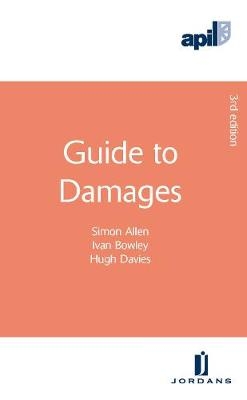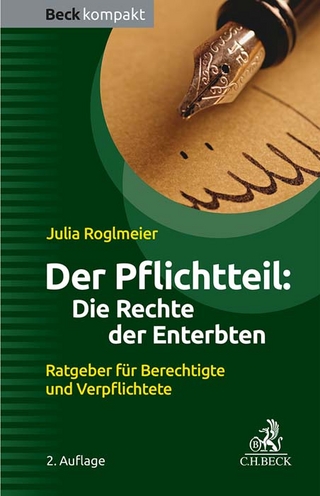
APIL Guide to Damages
Jordan Publishing (Verlag)
978-1-84661-607-5 (ISBN)
- Titel ist leider vergriffen;
keine Neuauflage - Artikel merken
Partner, Russell Jones & Walker Barrister, Lincoln House Chambers Barrister, Deans Court Chambers
• Pain, Suffering and Loss of Amenity (General Damages) • Damages for Loss of Earnings • Loss of Earning Capacity (Smith V Manchester Awards) • Earning Capacity – Loss of a Chance • Damages for Loss of Congenial Employment • Pensions Loss • Damages for Gratuitous Care • Damages for Loss of Housekeeping and Related Services (DIY/Decorating/Gardening, etc) • Housing • Housekeeping Capacity • Medical Expenditure and Aids and Equipment • Mobility and Transport • Mental Capacity and Court of Protection • Damages in Respect of Death • Interest • Benefits • Provisional Damages • Periodical Payments • Interim Payments • Investment of Damages • Causation • Appendices
| Erscheint lt. Verlag | 16.9.2013 |
|---|---|
| Sprache | englisch |
| Maße | 156 x 246 mm |
| Themenwelt | Recht / Steuern ► EU / Internationales Recht |
| Recht / Steuern ► Privatrecht / Bürgerliches Recht ► Besonderes Schuldrecht | |
| ISBN-10 | 1-84661-607-7 / 1846616077 |
| ISBN-13 | 978-1-84661-607-5 / 9781846616075 |
| Zustand | Neuware |
| Informationen gemäß Produktsicherheitsverordnung (GPSR) | |
| Haben Sie eine Frage zum Produkt? |
aus dem Bereich


